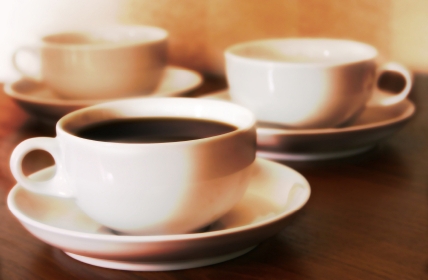Many people feel they cannot do without their morning cup of java — that without it, they won’t be able to get into the groove of their day — but they couldn’t be more mistaken.
Studies have demonstrated that long-term caffeine use versus placebo have no discernible differences. Due to this lack of significant difference, scientists were able to conclude that there are no benefits to drinking having caffeine as opposed to being caffeine free.
That “Instant Kick?”
Like most drugs, caffeine takes approximately 15-30 minutes to enter the bloodstream, yet some people report that their first sip of their preferred caffeinated beverage gives them an instant start. This is a demonstration of the placebo effect. The mind believes that relief from a caffeine headache is coming, or that they are going to “wake-up” and be more alert with that first sip, and so it happens.
The truth is, there is no “instant kick” from taking caffeine into the body. It takes a certain amount of time to get into the bloodstream, and will last in a person’s system for a long period of time, depending upon the individual’s metabolism. For example, if a person enjoys an espresso with 100mg of caffeine, approximately six hours later, this person will still have about 50mg of caffeine in his or her system.
The effects of drinking a morning cup of Joe are pure placebo — at least for the first 15-30 minutes, and it stays in a person’s system much longer than they think.
The Real Effects vs. Placebo Effects of Caffeine
Caffeine blocks adenosine receptors in the brain, the receptors that are responsible for keeping a person awake. Once these receptors are blocked, dopamine and glutamate become active, which gives the person an energy boost.
However, this energy boost is simply that — a person is able to stay awake longer and perform tasks that require concentration.
The placebo effect comes in when a person believes that they are more mentally clear, have better memory, and are able to learn more quickly. Again, this is a result of a placebo effect that caffeine provides. If the person believes that he or she is going to be able to learn more or memorize more, then they will likely prefer their caffeine kick over nothing at all.
Over the long term, there are no clear advantages to drinking caffeinated beverages — just a placebo.



